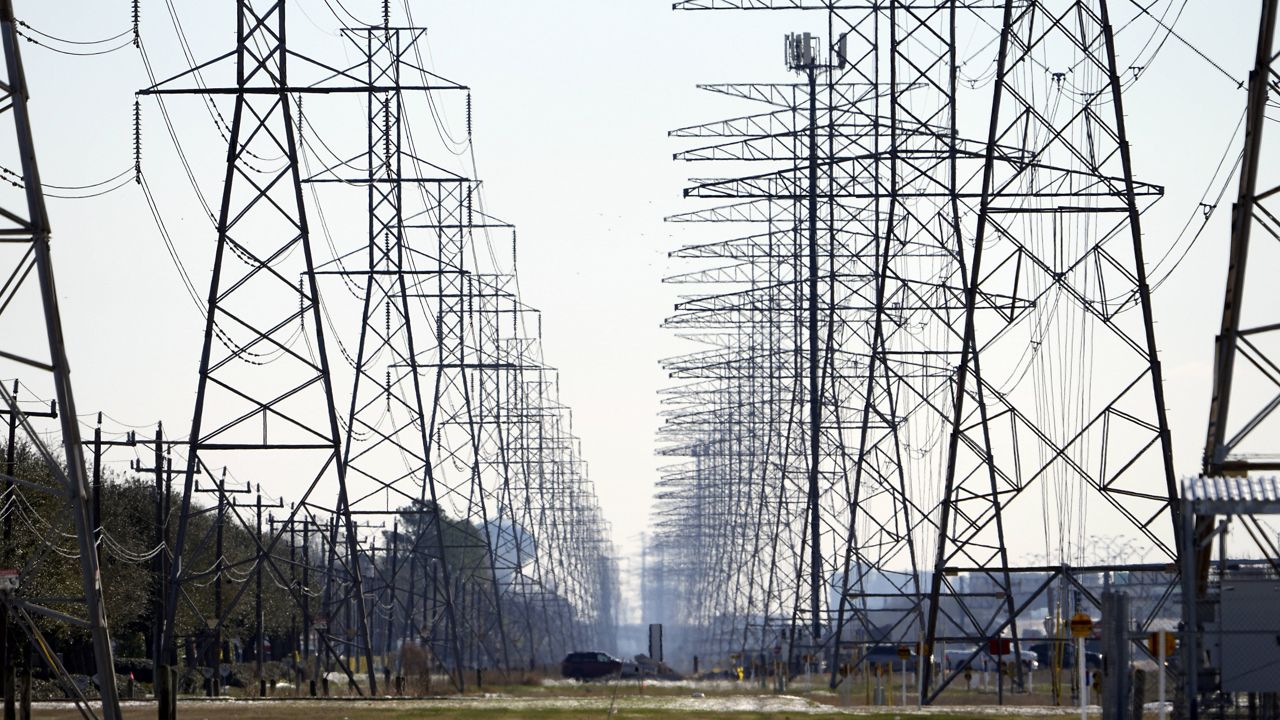WASHINGTON — The White House on Thursday said the widespread power outages in Texas this week are proof that the United States must shore up its infrastructure to stand up to climate change.
What You Need To Know
- A homeland security adviser to President Joe Biden said Thursday that widespread power outages in Texas this week prove that the U.S. must upgrade its infrastructure to withstand climate change
- Liz Sherwood-Randall told reporters the extreme weather demonstrates that climate change is real and that the U.S. is not adequately prepared for it
- She said the Biden administration plans to work to “strengthen and harden” the nation’s infrastructure
- A winter storm that hit Texas this week led to more than 4 million people losing power — many for days — as the state’s power grid buckled due to higher demand and sources such as natural gas lines and wind turbines freezing
“The extreme weather events that we’re experiencing this week across the central, southern and now the eastern United States do yet again demonstrate to us that climate change is real, and it’s happening now, and we’re not adequately prepared for it,” Liz Sherwood-Randall, President Joe Biden’s homeland security adviser, told reporters.
"And in particular, power grids across our country, particularly in Texas, are overloaded by the demands that are placed on them under these circumstances, and the infrastructure is not built to withstand these extreme conditions," she added.
Sherwood-Randall said the Biden administration plans to work to “strengthen and harden” the nation’s critical infrastructure.
“We know that we can’t just react to extreme weather events; we actually need to plan for them and prepare for them,” she said.
A winter storm that hit Texas this week led to more than 4 million people losing power — many for days — as the state’s power grid buckled due to higher demand and sources such as natural gas lines and wind turbines freezing.
Some conservatives blamed renewable energy sources for Texas’ problems and used the storm as a reason to attack green energy policies. However, failures in natural gas, coal and nuclear energy systems were responsible for nearly twice as many outages as frozen wind turbines and solar panels, said the Electric Reliability Council of Texas, which operates the state’s power grid.
Sherwood-Randall did not elaborate on what measures the Biden administration might propose for making the nation’s energy infrastructure more resilient, but she said it would require technology, innovation and collaboration from federal government agencies, communities and the private sector.
White House press secretary Jen Psaki said Thursday that the president’s primary goal at the moment is passing his $1.9 trillion COVID-19 relief package but that he’s also focused on the “emergency at hand” in Texas and in surrounding states.
Biden last month said his Build Back Better economic recovery plan will call for "historic investments in infrastructure and manufacturing, innovation, research and development and clean energy” and last week he met with a bipartisan group of senators to exchange ideas on improving infrastructure.
Unlike other parts of the country, Texas operates its own power grid, limiting the amount of power that can be transferred from other states during a supply crunch.
“The Texas grid is islanded,” Sherwood-Randall said. “That is a deliberate decision that was made by Texas, but I do think going forward there’s an important conversation to be had around how we can enhance the resilience of our critical infrastructure to meet the needs of all our citizens.”
Biden is receiving regular updates about the problems in Texas and has authorized the Federal Emergency Management Agency to grant “immediate assistance to alleviate hardship and suffering being caused by this emergency,” the White House said.
Sherwood-Randall said that FEMA has provided 60 generators to support water treatment plants, hospitals and nursing homes, 729,000 liters of water, more than 10,000 wool blankets, 50,000 cotton blankets, and 225,000 meals to Texas.
She said “a silver lining to this very dark cloud of COVID” is that FEMA officials had already been working closely with state emergency preparedness and response agencies in the region.
“So there’s a great deal of familiarity among the people involved in needing to work through these issues,” Sherwood-Randall said.



